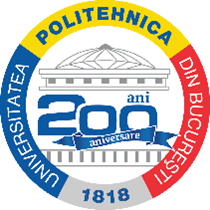University Politehnica of Bucharest
University Politehnica of Bucharest (UPB), started its activity in 1818, being the oldest engineering school in Romania. UPB has as objective to train technical specialists capable of applying their technical, scientific and cultural knowledge in supporting the technological and economic progress of multiple areas, such as IT, automation, electrical engineering, material engineering etc. The goal of the University Politehnica of Bucharest is to create an environment where education, research and innovation mix together to support an evolving society and economy. UPB promotes modern educational techniques, adapted to European and international needs, preparing engineers capable of adapting to new technologies in a continuously evolving society and economy. Graduates from UPB are encouraged to focus their work towards creating a sustainable and steadily improving society. University Politehnica of Bucharest comprises more than 25000 students and more than 1650 people comprising the academic personnel. These numbers are divided among the 15 faculties the University comprises. The faculties are divided in 57 departments, making use of 38 research centers, 6 interdisciplinary research-training platforms and 9 Multiple Users Research Databases (MURD).
UPB as higher education institutions, has a specific educational and research focus on Data Science, AI and Virtual Reality topics. Its teaching experience brings significant value to this project which focuses on developing innovative educational materials. This institution trains future engineers who will interact with the emerging Data Science, AI and Virtual Reality technologies in research topics or employment. UPB also has considerable experience in developing online collaborative learning solutions centered on technical education. This expertise in building online educational communities, supported through a mix of online and offline events and rewards, will be used in order to create a sustainable, active online learning community that generates valuable experiences and reputation for its participants. The Faculty of Automatic Control & Computer Sciences also has considerable practical experience as well as research publications on digital badges and on gamification, supporting a top-level design and development of the user engagement and reputation layer of the proposed online community.










